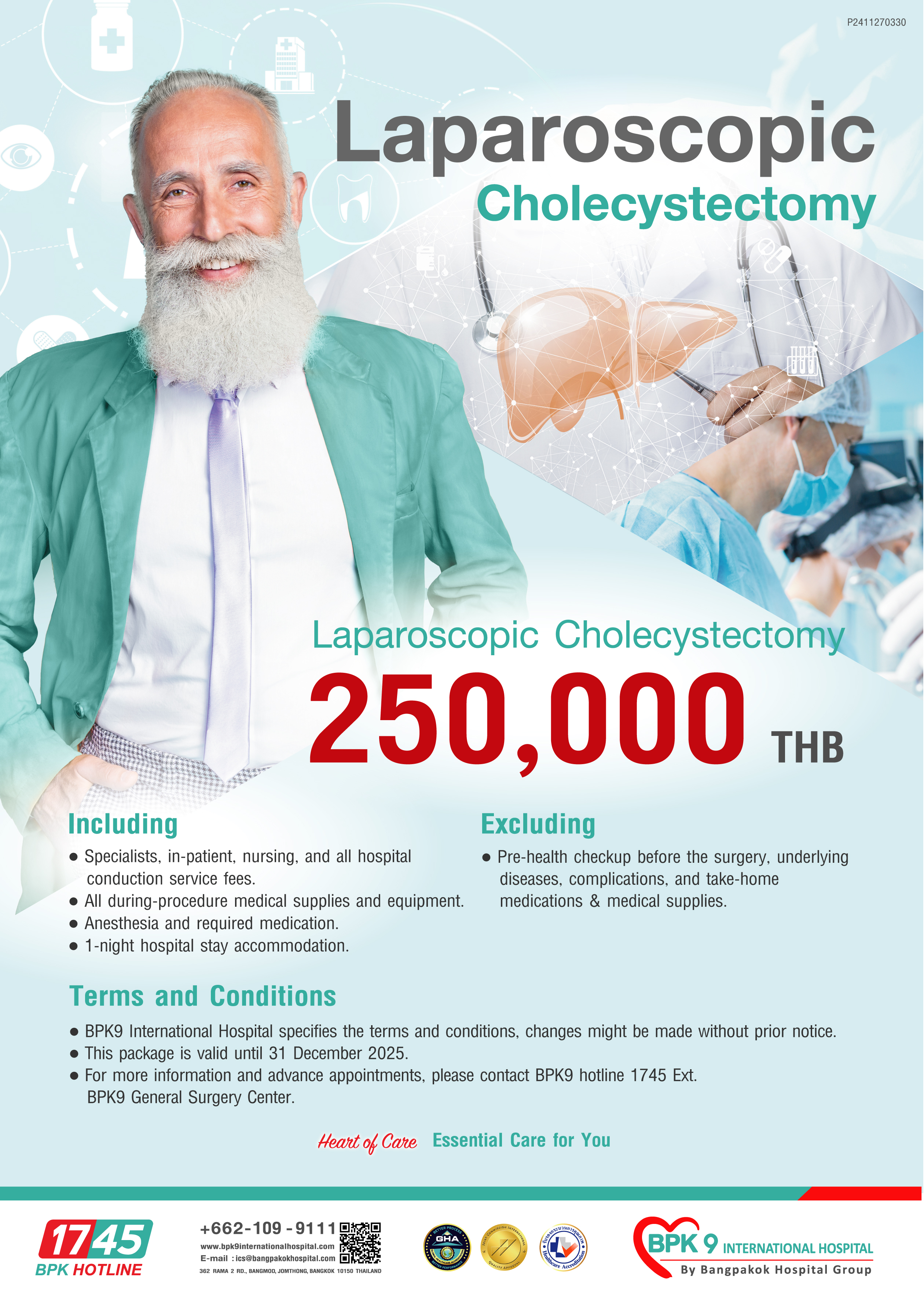Laparoscopic Cholecystectomy

A laparoscopic cholecystectomy is a surgical procedure to remove your gallbladder; the small, hollow organ that stores bile for your digestive system, also called gallbladder removal surgery. It is a common treatment for many types of gallbladder disease. This is because the disadvantages of removing your gallbladder are generally fewer than those of the diseases it treats or the related diseases may develop. You can live a healthy life without a gallbladder. The procedure uses tiny incisions of a half-inch or less to minimize trauma, pain, and recovery time. While an open operation with a larger incision may occasionally be necessary, laparoscopic cholecystectomy is far more common today than open ones. The procedure is performed under general anesthetic and usually takes about an hour or two.
The patient might need to have a cholecystectomy, or surgery to remove the gallbladder if the patient has a chronic or persistent gallbladder disease. Gallstones are the most common reason. While many people live with gallstones and never have problems with them, however, those who do have problems tend to have them repeatedly. A gallstone that gets stuck anywhere in your biliary tract can block the bile flow, causing pain and illness. It might block the opening to the gallbladder, the common bile duct, or the pancreatic duct.
A laparoscopic cholecystectomy is needed if the gallbladder disease; interferes with your quality of life, poses significant risks to your health, and is expected to continue to worsen. And there are certain conditions that can affect your gallbladder like; gallstone disease, chronic cholecystitis, gallbladder cancer, etc.
There are benefits of laparoscopic cholecystectomy including;
- Minimally invasive incision: The procedure is minimally invasive, with considerably smaller surgical incisions made and therefore, smaller scars afterward.
- Reduce blood loss: There is reduced blood loss (hemorrhage) during this type of surgery, compared to open surgery which has a higher risk of blood loss.
- Less pain: You experience less pain after the surgery due to a tiny cut.
- Short-term hospital stay: Your hospital stay is shorter than when you have other types of gallbladder surgery procedures. It usually takes a one-night hospital stay.
- Reduce infection risks: You will have a lesser chance of infection or other complications following a laparoscopy.
- Faster recovery: You can more quickly return to your normal everyday activities.
At present, laparoscopic cholecystectomy is the preferred procedure for individuals who need one. However, there are reasons that the procedure is not recommended for certain patients;
- If the patient suffers from allergies and has a higher risk of an adverse reaction to the anesthesia.
- On the contrary, if a patient is a pregnant woman in the first trimester of her pregnancy, the procedure is much safer and can be performed.
There are some risks associated with laparoscopy for gallbladder surgery. Complications include bleeding and infection, which is rare. The need for standard abdominal surgery, nausea, and vomiting following surgery. Injuries like; Intestinal injury (intestinal perforation), blood vessel injury (vascular trauma), or bile duct injury (BDI). And more rarely, the inability to remove the gallbladder safely using the laparoscopic procedure.
About the package:
Including
- Specialists, in-patient, nursing, and all hospital conduction service fees.
- All during-procedure medical supplies and equipment.
- Anesthesia and required medication.
- 1-night hospital stay accommodation.
Excluding
- Pre-health checkup before the surgery, underlying diseases, complications, and take-home medications & medical supplies.
Terms and Conditions
- BPK9 International Hospital specifies the terms and conditions, changes might be made without prior notice.
- This package is valid until 31 December 2025.
- For more information and advance appointments, please contact BPK9 hotline 1745 Ext. BPK9 General Surgery Center.

